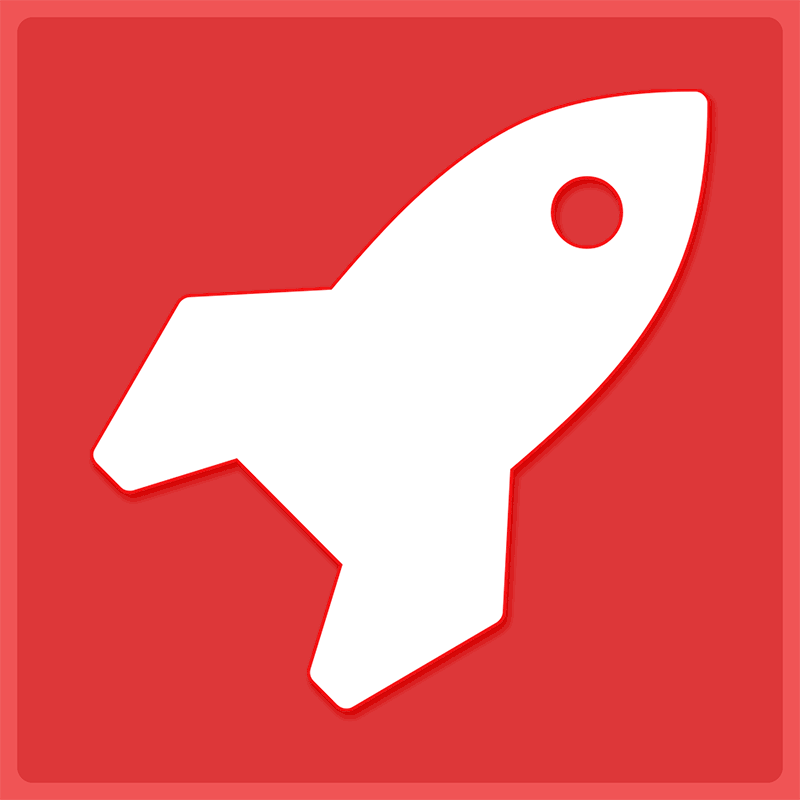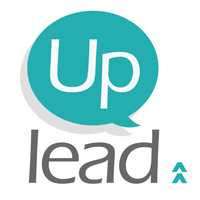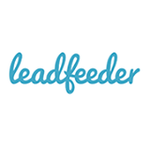Yes, most sales prospecting solutions are intended to be accessible from numerous devices and platforms. This allows salespeople to stay connected and organized when on the fly. Many solutions provide browser extensions, mobile apps, and desktop versions, allowing users to access their prospecting data on any platform. Furthermore, most programs are compatible with both Mac and Windows operating systems, allowing users to utilize them regardless of which platform they prefer.
List of Best Sales Prospecting Tools
Crunchbase, Sales Intelligence platform catering to professionals in various roles such as sales, marketing, finance, recruitment, and leadership. Through personalized features like account suggestions, lists, and territory settings, Crunchbase strea...Read More Crunchbase
Lyzr AI – a AI platform that revolutionizes business operations through intelligent and customized agents. Our user-friendly low-code and no-code solutions empower both technical and non-technical users to leverage the full potential of AI. Bo...Read More Lyzr AI
Scalelist: the ultimate solution for LinkedIn Sales Navigator users. Export leads effortlessly with our Chrome Extension and boost them with verified emails and phone numbers instantly. Forget about tedious processes and supercharge your lead generat...Read More Scalelist
Bookyourdata is a B2B lead generation solution for your business. With an impressive 97% accuracy rate and real-time email verification, our pay-as-you-go model grants you access to a vast database of over 250 million global contacts from various ind...Read More Bookyourdata
Salesforce Sales Cloud is a CRM software that simplifies sales operations. It offers functions like lead nurturing, contact management, and advanced data analysis to increase sales team effectiveness. With capabilities for tracking opportunities, aut...Read More Salesforce Sales Cloud
Calendly is a highly efficient scheduling software that simplifies your daily tasks and boosts your productivity. Its intuitive interface and customizable features are designed to cater to your individual requirements. With its user-friendly approach...Read More Calendly
the powerful sales management tool, LinkedIn Sales Navigator. Experience seamless integration with your CRM to increase productivity for your sales teams on-the-go. Maximize the value of CRM data and enhance efficiency for field sales with Sales Navi...Read More LinkedIn Sales Navigator
Hunter.io is email-finding tool that revolutionizes lead generation for businesses. With convenient features like domain search, email verification, and bulk tasks, Hunter.io streamlines the process of finding accurate contact information for potenti...Read More Hunter.io
Cognism is a sales intelligence tool that transforms your lead generation strategy. Our cutting-edge platform provides accurate and verified contact information for specific prospects, ensuring GDPR compliance and enabling impactful sales engagements...Read More Cognism
AeroLeads is a lead generation solution for social media platforms like LinkedIn, CrunchBase, Inbound.org, AngelList, and GitHub. With seamless integration with top CRMs like SalesForce, HubSpot, MailChimp, and Zapier, you can easily manage your lead...Read More AeroLeads
UpLead is a B2B lead generation solution. With a vast database of 46 million business contacts worldwide, this powerful tool enables you to target your ideal audience with personalized lists and effective campaigns, leading to increased sales. UpLead...Read More UpLead
DiscoverOrg is a leading Sales Intelligence platform designed to assist B2B Sales and Marketing teams. It simplifies lead generation, maintains a precise database, and delivers personalized messages at strategic times to increase revenue. Our softwar...Read More DiscoverOrg
Leadfeeder is web-based sales management tool that captures leads from your website visitors. Receive instant real-time reports on both companies and individuals browsing your site. With the option to send templated emails, Leadfeeder simplifies comm...Read More Leadfeeder
LeadIQ is a leading sales tool designed to streamline prospecting by providing accurate B2B contact information and seamless integration with CRM systems. It equips sales teams with the necessary tools to efficiently acquire, enrich, and engage with...Read More LeadIQ
HubSpots advanced lead management feature enables businesses to effectively track and monitor their leads and interactions, offering valuable insights into lead statuses. The lead scoring system allows sales teams to easily identify and prioritize hi...Read More HubSpot
Prospect.io revolutionizes prospecting with its efficient automation tools. Discover valuable email addresses, tailor customized campaigns, and seamlessly integrate them into your CRM. Eliminate the hassle of manual and time-consuming prospecting and...Read More Prospect.io
Datanyze is cloud-based business intelligence platform designed for sales and marketing leaders. Our innovative tools help you collect and organize customer data and email information, giving you valuable insights into your target audience. Improve y...Read More Datanyze
BuiltWith marketing tool is your go-to solution for accessing high-quality lead data on a global scale. Its advanced filtering features and predictive lead packages give you instant access to targeted lead lists. Gain valuable insights on your curren...Read More BuiltWith
Learn More About Sales Prospecting Tools
- What Is Sales Prospecting Tools?
- What Are The Recent Trends In Sales Prospecting Tools?
- Benefits Of Using Sales Prospecting Tools
- Important Factors To Consider While Purchasing Sales Prospecting Tools?
- What Are The Key Features To Look For In Sales Prospecting Tools?
- Why Do Businesses Need Sales Prospecting Tools?
- How Much Time Is Required To Implement Sales Prospecting Tools?
- What Is The Level Of Customization Available In Sales Prospecting Tools?
- Which Industries Can Benefit The Most From Sales Prospecting Tools?
- Conclusion
What Is Sales Prospecting Tools?
Sales prospecting tools are software or applications that help salespeople locate and contact new customers or prospects. These technologies collect information about potential clients and their behavior using techniques such as data mining, email automation, and social media monitoring, allowing sales teams to focus on the most promising prospects.
Sales prospecting tools range from basic contact management systems to powerful lead creation platforms. They can also incorporate features such as lead scoring, lead tracking, and CRM connectivity to improve the prospecting process' efficiency. Sales prospecting tools can benefit sales teams in a variety of ways, including saving time and effort in lead generation and enhancing sales conversion.
With these technologies, salespeople can devote their time and efforts to nurturing and completing deals with the most qualified leads. When selecting a sales prospecting tool, it is critical to examine your sales team's individual requirements and the capabilities that best meet those goals. Some tools may be better suited to larger sales teams, while others may be more cost-effective for small enterprises.
Consider the tool's compatibility with your present systems and workflows, as well as the quality of customer support offered by the tool's vendor. It is also critical to examine the tool's reputation and read reviews from other users to ensure its usefulness and dependability.
What Are The Recent Trends In Sales Prospecting Tools?
Sales prospecting is a critical component of any effective sales strategy. It entails finding potential consumers and contacting them in a tailored and targeted manner in order to generate leads and close sales. Sales prospecting has gotten more complex and efficient in the digital age, thanks to a variety of tools and technologies.
Let's explore, we'll go over the latest developments in sales prospecting tools that can help you streamline and improve your prospecting efforts.
1. AI And Machine Learning (ML): One of the most significant advances in sales prospecting tools is the incorporation of AI and machine learning. These technologies can analyze and interpret massive amounts of data to find and prioritize valuable leads, hence improving the prospecting process's efficiency and effectiveness. Sales teams can use AI-powered technologies to customize their pitch to potential consumers, boosting the likelihood of conversion.
2. Automation: Sales prospecting solutions now include automation features, allowing sales teams to automate routine processes like sending follow-up emails, scheduling appointments, and updating lead information. This automation saves time while also ensuring consistency and accuracy in the prospecting process.
3. Social Selling: Social media platforms have emerged as valuable avenues for sales prospecting, and many products now include capabilities that allow you to exploit social media in your prospecting process. These tools enable sales teams to track and communicate with potential consumers on social media, fostering relationships and, ultimately, generating leads.
4. Data-Driven Insights: Sales prospecting technologies now provide data-driven insights and analytics to assist sales teams in making educated decisions and maximizing their prospecting efforts. These insights can include data on lead behavior, conversion rates, and even estimate potential customers' likely to buy, allowing sales teams to be more strategic and targeted in their prospecting efforts.
5. Integration: The latest trend in sales prospecting tools is the combination of multiple tools and technology. Many prospecting tools now integrate with CRM systems, email providers, and social networking platforms. These interfaces give sales teams a more comprehensive view of their prospecting efforts and streamline the process.
Benefits Of Using Sales Prospecting Tools
Sales prospecting tools are a great asset for any sales team, as they provide a variety of benefits that can help them improve their sales efforts and, eventually, increase revenue.
Let's explore, we will look at the top benefits of using sales prospecting tools and how to make an informed decision when choosing the best tool for your firm.
1. Increased Efficiency And Time Savings: Sales prospecting tools automate and streamline the time-consuming process of identifying and qualifying potential prospects. These technologies employ powerful algorithms to search and analyze data from a variety of sources, including social media, email, and websites, in order to obtain important prospect information. This eliminates the need for manual research, allowing sales teams to devote their time and efforts to engaging with qualified leads.
2. Increased Productivity: By freeing up time from manual duties, sales teams can focus on high-value activities like prospecting and closing deals. This results in enhanced productivity and output from the team.
3. Access To Accurate And Relevant Data: Sales prospecting systems give sales teams with accurate and up-to-date lead data, allowing them to make more educated decisions and personalize their approach to each prospect. This data contains contact information, social media accounts, job titles, and corporate details, providing sales people with significant insights into their prospects' wants and problem issues.
4. Individualized Outreach: Sales prospecting systems provide individualized and targeted outreach to prospects, which increases the likelihood of a favorable reaction. These solutions frequently include email templates, customized message, and automated follow-ups, allowing sales professionals to reach out to a bigger pool of leads in a more personalized manner.
5. Improved Lead Segmentation: Effective lead segmentation is critical to successful sales prospecting. Sales prospecting solutions use complex segmentation techniques to identify prospects based on a variety of variables, including geographic region, industry, and buyer personas. This enables sales teams to prioritize their efforts and focus on the most promising leads.
6. Improved Tracking And Reporting: Sales prospecting solutions include built-in tracking and reporting features, allowing sales teams to track the effectiveness of their prospecting efforts. With real-time data, sales staff can track their outreach and follow-up actions, evaluate which techniques are effective, and alter their approach as needed.
7. Cost-Effective Solution: Investing in sales prospecting tools can save businesses significant time and money in the long term. Increased efficiency and productivity allow sales teams to generate more leads and close more deals, resulting in a higher return on investment.
Important Factors To Consider While Purchasing Sales Prospecting Tools?
When it comes to acquiring sales prospecting tools, buyers need keep several criteria in mind to guarantee they are investing in a useful and productive tool.
Here are some essential aspects to consider while making your decision:
1. Identify Your Objectives: Before you begin looking for sales prospecting tools, you must first determine your individual objectives and goals. Consider your target demographic, industry, and the type of sales process you use to identify which features and functionalities are critical to your organization.
2. User-Friendly Interface: Any sales prospecting tool should have an easy-to-use interface. The easier it is to navigate and use, the more likely your team will accept and implement it effectively. Look for products with straightforward and intuitive interfaces that require little training to get started.
3. Integration Capabilities: Sales prospecting tools should work easily with your existing CRM, email, and communication systems. This integration will reduce time and effort in data transfer, resulting in a smoother sales process.
4. Data Accuracy: Accurate data is the foundation of effective prospecting. Make sure the program you chose has credible data sources and refreshes its database on a regular basis.
5. Contact Database Size: The size of your contact database is a critical issue to consider because it directly affects how many prospective leads your team can reach. Seek out solutions with a large and diversified database to improve your chances of finding solid leads.
6. Data Filtering And Targeting Capabilities: Each firm has a distinct target audience, and your sales prospecting tool should be tailored to that. Look for tools that allow you to filter data by industry, job role, and other characteristics to better target your ideal prospects.
7. Analytics And Reporting: The ability to track and analyze your prospecting efforts is critical for determining the effectiveness of your campaigns. Look for solutions with analytics and reporting capabilities to provide insights into your prospecting performance.
8. Support And Training: Your team may experience a learning curve when using new technology. Look for products that provide customer support and training to help you and your team get the most out of the technology.
9. Cost And ROI: When choosing a sales prospecting tool, it is critical to examine both the total cost and the possible return on investment (ROI). Look for tools with a fair combination of functionality and pricing.
10. Trial Period And Demo: Before making a final decision, it is usually advisable to test the tool for yourself. Look for tools that provide a free trial or demo of their platform so you can get hands-on experience and decide if it meets your demands.
By taking these criteria into account, you can make an informed selection and choose a sales prospecting tool that will help you achieve your business objectives and propel your sales efforts to success.
What Are The Key Features To Look For In Sales Prospecting Tools?
When looking for the best Sales Prospecting Tool, consider crucial characteristics that can help streamline your prospecting process and increase your sales efforts.
Here are the key features to consider:
1. Lead Database Management: Look for a product that will help you manage and arrange your leads in a centralized database. This will save you time and effort while looking for possible consumers.
2. Advanced Search And Filtering Options: A decent sales prospecting tool should include advanced search and filtering capabilities to assist you target the proper audience. Filters can be applied based on industry, geolocation, company size, and other criteria.
3. Contact Information And Social Media Integration: Make sure the tool gives up-to-date contact information for leads and integrates with social media platforms to improve interaction and understanding of your prospects.
4. Data Enrichment: The ability to supplement prospect information with company and personal characteristics like as job titles, industry, and contact information is critical for effective prospecting.
5. Email And Communication Tools: Effective communication is essential for sales prospecting. Look for a service that has email templates, tracking, and automated follow-up options to help you keep track of your outreach.
6. CRM link: Having a seamless link with your CRM system will help you manage leads and track customer interactions more efficiently.
7. Analytics And Reporting: The ability to track and analyze prospecting activities is critical. Look for a program that provides detailed statistics and data to track the performance of your efforts.
8. Mobile Accessibility: Because sales professionals are frequently on the move, a mobile-friendly technology is critical for accessing and managing leads on the go. Consider these critical aspects to pick a sales prospecting tool that meets your individual demands and helps you achieve your sales goals efficiently.
Why Do Businesses Need Sales Prospecting Tools?
Businesses require sales prospecting tools to successfully find and target potential clients, boost sales and revenue, and remain ahead of the competition. These solutions provide vital data and insights about potential clients, helping firms to adjust their sales strategy and increase overall conversion rates. One of the primary reasons that firms want sales prospecting tools is to save time and resources.
Manual prospecting can be time-consuming and labor-intensive, diverting valuable resources from other critical business tasks. Businesses can use automated prospecting systems to find potential leads more effectively and accurately, saving time and costs. Furthermore, sales prospecting tools enable organizations to target the appropriate demographic.
These technologies can discover ideal customer profiles and provide useful insights into how to effectively reach and engage with them by studying customer data and behavior. This customized strategy can enhance conversion rates, resulting in more sales and money. In today's competitive business environment, staying ahead of the competition is critical.
Sales prospecting tools help firms get a competitive advantage by keeping them up to date on the latest trends, consumer preferences, and market changes. This information might help organizations change their sales strategy and differentiate themselves in the market. Finally, sales prospecting tools enable firms to monitor their sales progress and performance.
Businesses can use tools such as lead scoring and analytics to monitor their sales pipeline, discover areas for improvement, and evaluate their return on investment (ROI). This data-driven strategy can assist firms in making educated decisions and optimizing their sales processes for improved results.
How Much Time Is Required To Implement Sales Prospecting Tools?
The time necessary to install sales prospecting tools varies according on the type of tool and the complexity of your sales process. However, with good planning and preparation, you can get these tools up and running quickly. Typically, the installation procedure can last from a few days to a few weeks. This includes configuring the technology, connecting it with your existing systems, and teaching your team how to utilize it efficiently.
Before beginning the implementation process, it is critical to identify your individual requirements and goals. This will assist you in selecting the appropriate tools and prioritizing the features that are critical to your sales plan. Another significant element to consider is the level of customization required by your organization. Some sales prospecting solutions have more configuration and setup, which may take longer to execute.
Once you've picked the correct tools and have a clear grasp of your goals, you can start implementing. This may include creating user accounts, assigning rights, and importing data. However, real implementation is only one part of the puzzle. To get the full benefits of these tools, provide extensive training to your workforce. This could include onboarding workshops, video lessons, or hands-on practice.
Ultimately, the time necessary to adopt sales prospecting tools will be determined by your readiness and dedication to the process. By devoting the appropriate time and money, you may effectively integrate these technologies into your sales process and improve your prospecting efforts.
What Is The Level Of Customization Available In Sales Prospecting Tools?
When selecting sales prospecting tools, one important factor to consider is the level of customization provided. Customization refers to the capacity to adapt the tool's features and functionalities to meet the specific demands and aims of your firm. Different sales prospecting tools provide varying levels of flexibility, so it is critical to understand your alternatives before making a purchase.
Here are some crucial elements to consider when considering the customization capabilities of a sales prospecting tool.
1. Customizable Targeting: The first step in prospecting is to identify your ideal consumers. Look for a program that lets you set particular criteria like region, industry, firm size, and job title. This will allow you to target the most potential prospects for your firm.
2. Personalization: A decent prospecting tool should allow you to tailor your outreach efforts via email templates, drip campaigns, and merge tags. This not only increases the likelihood of making a connection with potential consumers, but it also saves time and effort for your sales staff.
3. CRM Integration: When your sales tool interfaces with your existing CRM platform, you can easily customize your prospecting efforts. This enables you to sync and segment leads, measure interactions, and design personalized follow-up actions.
4. Adjustable Workflow: A flexible workflow allows you to tailor your sales process to your own business demands. Whether you want to automate specific tasks, schedule follow-up calls, or generate reminders, a personalized workflow can help you streamline your prospecting.
5. Reporting And Analytics: The ability to generate reports and track metrics is critical for determining the efficacy of your prospecting campaigns. Choose a technology that provides configurable dashboards, statistics, and analytics to help you determine what works and what needs to be improved.
A high level of personalization in your sales prospecting tool can significantly improve your ability to locate and interact with potential customers. Consider these points when weighing your alternatives to guarantee you select a tool that can be adjusted to your specific business requirements.
Which Industries Can Benefit The Most From Sales Prospecting Tools?
Sales prospecting tools are an invaluable resource for organizations in any industry wanting to boost sales and expand their customer base. However, particular industries may benefit more from these technologies due to their unique qualities and needs.
Let's explore, we'll look at the top industries that can benefit most from sales prospecting tools.
1. Real Estate: The real estate market is extremely competitive, with agents continually vying for new leads and customers. Sales prospecting tools can greatly aid in this process by giving precise demographic and behavioral information about possible buyers and sellers. This information enables agents to better focus their efforts and boost their chances of closing agreements.
2. Software & Technology: Sales prospecting tools can be transformational for software and technology companies. These technologies provide advanced capabilities such as lead scoring, predictive analytics, and automated email marketing, saving sales teams time and effort. Given the ever-changing nature of the technology business, getting ahead of the competition through effective prospecting is critical to success.
3. Healthcare: The healthcare industry is recognized for its complexities and lengthy sales cycles. Sales prospecting tools can assist healthcare organizations in identifying and connecting with new clients in their specialized niche, whether it be hospitals, clinics, or individual healthcare practitioners. These tools also provide valuable information about a healthcare organization's current patient base, making it easier to identify potential prospects.
4. Business Services: Business services encompass a wide range of businesses, including consulting, marketing, accounting, and legal services. These sectors need salespeople to have a solid awareness of their clients' needs and problem issues. Sales prospecting tools can provide significant insights into target industries and assist in identifying possible clients for these services.
5. E-Commerce: E-commerce competition is strong, and customer acquisition is vital to success. Sales prospecting tools provide e-commerce enterprises with critical information such as website visitor behavior, purchase history, and purchasing habits. This information can help organizations design highly focused sales campaigns, increasing sales and revenue.
6. Education: Sales prospecting technologies can also be very useful in the education industry, which includes schools, universities, and vocational training institutions. These systems can provide useful data on student enrollment and demographics, helping educational institutions to develop tailored marketing strategies and attract more students.
Conclusion
In conclusion, sales prospecting tools are critical for firms trying to boost leads and close more deals. The appropriate solution not only saves time and effort, but it also delivers vital insights and data to help you target the right audience and tailor your sales approach. When considering acquiring a sales prospecting tool, you should analyze your individual objectives and goals, as well as the features and capabilities provided by different solutions.
Consider the ease of use and connection with your existing systems. With the appropriate solution, your sales staff can efficiently find and engage new customers, resulting in higher conversions and revenue growth. We hope this buyer's guide has given you enough information to make an informed decision and select the finest sales prospecting tool for your company.
Sales Prospecting Tools FAQ's
Can Sales Prospecting Tools Be Accessed Across Multiple Devices And Platforms?
Is Sales Prospecting Tools Future-Proof And Adaptable To Emerging Technologies Like AI, Blockchain Or IoT?
Sales prospecting tools are continually improving and adapting to new technology, making them future-proof and capable of keeping up with the ever changing corporate scene. With the emergence of AI, blockchain, and IoT, these tools are adding advanced capabilities such as predictive analytics, automated lead creation, and real-time data tracking to improve their effectiveness. Sales prospecting tools keep firms ahead of the competition by staying up to date on developing technologies.
Is There A Free Trial Offered To Assess Sales Prospecting Tools Before Committing?
Yes, many sales prospecting programs provide a free trial for a limited time, allowing consumers to analyze their efficacy before making a purchase. This allows you to evaluate the tool's features, usability, and general performance before making a decision. Take advantage of these free trials to determine the greatest fit for your business and sales objectives without incurring any financial risk.
Does Sales Prospecting Tools Offer Data Security Features And Meet Regulatory Compliance Standards?
Yes, most sales prospecting systems have data security safeguards to protect your sensitive information. They also follow regulatory requirements like GDPR, HIPAA, and CCPA to ensure consumer data protection and confidentiality. These tools protect against illegal access or data breaches by utilizing data encryption, secure servers, and regular backups. They also provide capabilities such as user permissions and activity logs for tracking and controlling data access within the company.
Can Sales Prospecting Tools Integrate Seamlessly With Existing Tools And Platforms?
Yes, most sales prospecting technologies are designed to work easily with existing tools and platforms. This results in a more efficient and simplified workflow because all of your sales data and information can be accessed in one location. Furthermore, many sales prospecting solutions have bespoke API connectors, which enable even deeper interaction with your existing tools and systems. By employing these connectors, you may improve the success of your sales prospecting campaigns.




















